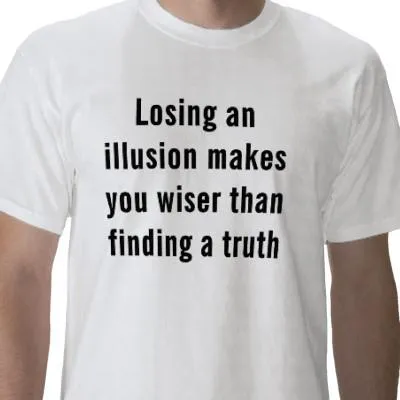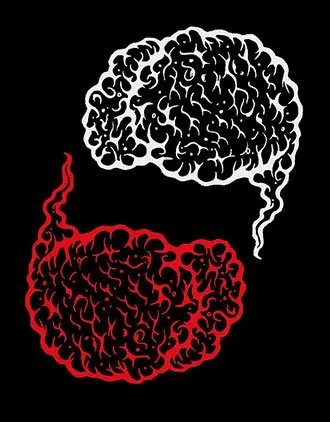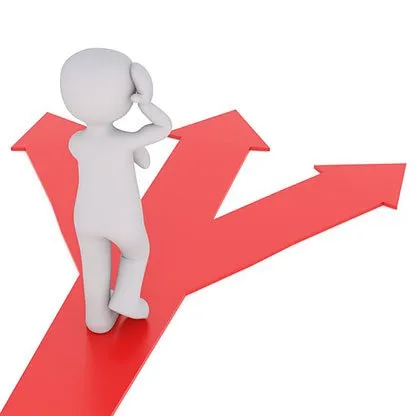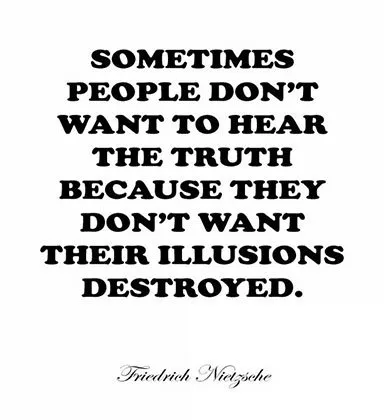Do you think facts are the only thing that matter? Do you think you only use facts to make a decision?
Do you think feelings are what matter more than facts? Do you think feelings alone are how you make decisions?
Do you only focus on the trees and details, or the forest and larger picture?
What if these are all false dichotomies?
The way we operate uses both of the components in those dualities. There are different capacities and different aspects to our consciousness and to learning about the world. Rather than try to falsely separate things as opposites, we should recognize that they are merely two components within one larger whole that work together by providing different functionality.
Sometimes the details of the trees can have us miss the bigger picture of the forest, and likewise the opposite can happen where we are looking at the general larger view and miss the details. Seeing both shows us how the either can be inaccurate or false. Ive' done posts on cognitive biases that relate to this, like the cheerleader effect, availability heuristic, attentional bias, anchoring or focusing effect , and ambiguity effect.
We are complex beings in consciousness, on top of the biological aspect. Facts alone don't always get people to re-evaluate and re-assess the validity of information. I've covered the backfire effect cognitive bias as well, where simply providing facts about something can even have the reverse effect of getting people to "dig in their heels" and defend the position more.
Facts are often not enough to have many people reconsider something. We all use emotional salience to value, weigh and give importance to one thing over another. In taking in information about a subject, some thing will be evaluated as more important and carry more weight for us to think about, talk about or remember. Not everything is weighed the same.
We can give more weight to false information simply because of how it makes us feel. We value it more because of how salient it is to us personally. This means false information can be held onto where we remain attached to it and reject contrary information without even honestly evaluating it. We bought into a "feel-good" idea or belief, and it has emotionally sucked us into a higher salience to give more value, weight and importance to it. Whatever tries to take that away -- to destroy a possible illusion -- is opposing the salient thing we feel attached to.
Instead of being led by our salience to things that we don't want to let go of (which can be false), we can reformulate what is most salient that has the most value, weight and importance to us. If we put truth as the most important, then we can direct our actions to learn more truth about human consciousness and the human being's capacities, like issues of emotional salience misdirecting us at times.
Emotions and salience are part of being a human, just like logic and reason is. If we had no emotional salience, we wouldn't be able to make decisions. Think about it. You would know the facts: this is here, that is there; this is round, that is square; this is soft, that is hard; this is red, that is blue. But could you really choose one over the other as a preference for a decision? Something being hard or soft is just that, but your motivation or desire to choose one will come from a salient evaluation of what you care or value to give more weight and importance to.
Without logic/reason we wouldn't know one thing from another, and without emotion/feeling we wouldn't be able to chose one thing from another. Whether the dualities within us unite together or oppose each other is our own choice. Some people choose to polarize and divide themselves from within, attempting to deny their full functionality that would allow them to function more correctly. I recently posted about aspects of "left"- and "right"-brain imbalance.
Antonio Damasio showed how this works in his studies on people with brain damage to areas where emotions are generated:
He found that they seemed normal, except that they were not able to feel emotions. But they all had something peculiar in common: they couldn’t make decisions. They could describe what they should be doing in logical terms, yet they found it very difficult to make even simple decisions, such as what to eat. Many decisions have pros and cons on both sides—shall I have the chicken or the turkey? With no rational way to decide, these test subjects were unable to arrive at a decision.
To be clear, it's not that feelings matter more in order to change people's minds, to convince them, or get them to reevaluate. It's how people feel about things that are directing their ability to look at things more honestly, and directing them as drives and motivations in life. We can manipulate people into accepting something true or false by trying to get them to "feel-good" about the information. But that doesn't seem like a good way to go about things. That's how sophistry and false rhetoric work, which is the domain of politicians and orators of various kinds like priest-controllers. Word magic is powerful.
Decisions are made using our minds with logic to gather facts along with emotions to feel what we want to do more than something else. It all depends on what is most important to us. If we put our worldview and selfview as most important, they can have falsity in them that we are attached to. Then new information or a reality that contrasts the former will be viewed as unfavorable and less honestly looked at. This is when we care and desire to uphold our false constructs more than allowing them to change in the face of truth. We value, weigh and place too much importance on a static or absolute image of ourselves or the world. We don't want our rosy-colored "perfection" and positivity mask illusion to come undone.
However, if we put the desire and care for truth first as what is most salient and important, as what we value and weigh the most, then we want the truth no matter how much it destroys our illusions and falsity we are attached to. When caring for truth, we want to know if your wrong so that we can let go of being more wrong and be more right. Learning to let go of the falsity we are attached to helps us grow the most.



